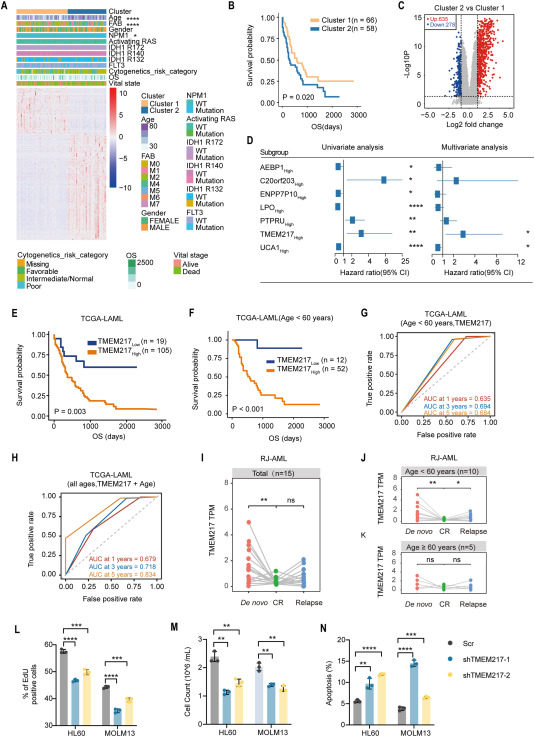
Identification of TMEM217 as a novel prognostic biomarker and potential therapeutic target in acute myeloid leukemia


Despite remarkable advances in molecular and cell biology of acute myeloid leukemia (AML), AML patients still frequently relapse and have low 5-year overall survival (OS) rates.1 It is worth noting that a recent study from the registry or clinical trial compilation has reported an improvement in the OS of adult AML patients, especially those under 60 years of age.2 There is an urgent need to unveil more accurate and sensitive biomarkers to improve the survival of AML patients. Gene expression profiling played a pivotal role in hematology and provided crucial insights into the biology of AML.3 Here, we identified TMEM217 as a promising biomarker for prognostic prediction especially for AML patients younger than 60 years of age, and as a target for developing innovative treatments for AML.
